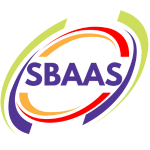SBAAS October Fair Work Wrap-Up: Key Updates and Essential Takeaways for Small Businesses
As October draws to a close, Fair Work Australia has highlighted critical updates for employers, including preparations for the holiday season, key compliance cases, and new resources. For small businesses, staying on top of these developments can prevent costly missteps and strengthen workplace practices. This month’s updates include end-of-year entitlements, notable litigations, and tools to help employers meet their obligations. SBAAS is here to help you understand these changes and take action where needed.
Preparing for the Holiday Season: Entitlements and Penalties
The holiday season can be challenging for small businesses, especially with additional entitlements around public holidays, leave, and penalty rates. Fair Work has recently released guidelines to clarify employer obligations during this period, which is crucial for small businesses in the hospitality, retail, and service sectors.
Key points to note:
- Public Holiday Rates: Make sure you know the public holiday penalty rates relevant to your industry award, as these can vary.
- Annual Leave: Employees may request annual leave, and Fair Work expects that leave requests are only refused on reasonable grounds.
- Cashing Out Leave: Some employees may request to cash out annual leave if their award or agreement permits.
To help understand your obligations, SBAAS offers HR & IR Services to support small businesses in managing leave entitlements, penalty rates, and employee queries.
If you’d like personalised guidance, arrange an obligation-free call back with our team to discuss your situation.
Recent Litigations: A Reminder of Compliance Risks
October saw several Fair Work litigations against businesses that neglected fundamental compliance standards, particularly regarding underpayments, record-keeping, and employee protections. These cases are a timely reminder for small businesses to keep their HR practices up-to-date and legally compliant.
Key Cases and Lessons for Small Businesses:
- Wage Underpayments: High-profile cases involving Metisse, Landhaus Wines, and Clarke Allied demonstrate the penalties for failing to meet minimum wage requirements. Regularly reviewing wage rates and classifications ensures compliance and reduces the risk of unintentional underpayments.
- Record-Keeping Failures: Record-keeping lapses were highlighted in multiple cases. Small businesses should keep accurate records of hours worked, leave balances, and employee details. SBAAS can assist with HR Documentation and Record-Keeping to streamline these processes and ensure compliance.
- Employee Protections Against Coercion: The recent CFMEU and Shotter litigations underline the importance of a respectful, supportive workplace. Small businesses are encouraged to review workplace practices and maintain fair treatment standards to avoid coercion or adverse action claims.
If you’re concerned about potential risks, SBAAS can help you identify and address any compliance gaps.
Book an obligation-free call back with one of our consultants to discuss your specific situation.
Fair Work Annual Report Insights: Industry Focus and Compliance Gaps
Fair Work’s 2023-24 Annual Report identifies industries at higher risk of non-compliance, including hospitality, cleaning, and agriculture, where many small businesses operate. Frequent issues include underpayments and inadequate understanding of Fair Work requirements.
Takeaways for small businesses include:
- Stay Informed: Understanding your industry’s relevant awards and agreements is key. SBAAS offers HR Consulting Services that provide guidance on award interpretation and compliance.
- Conduct Self-Audits: Regularly reviewing your payroll and employee records can help identify issues before they become costly mistakes.
- Use Fair Work Resources: Fair Work’s free resources are invaluable tools to stay on top of pay and conditions, enterprise agreements, and more.
SBAAS can assist with compliance reviews and help you stay aligned with Fair Work standards, building a stronger, compliant workplace.
New Resources on Pay, Enterprise Agreements, and Bargaining
Fair Work recently released resources on understanding pay conditions, enterprise agreements, and bargaining processes. These materials are designed to assist small businesses in navigating their obligations and effectively engaging in enterprise agreements, if applicable.
If you’re considering enterprise bargaining or want to explore ways to align employee pay with Fair Work standards, SBAAS’s HR Consulting Services can guide you through each step, ensuring compliance and a smooth bargaining process.
Targeted Inspections and Industry-Specific Compliance
This month, Fair Work focused on inspections in industries with histories of underpayment and exploitation. In partnership with the Department of Home Affairs, inspections targeted Brisbane’s migrant workforce, while Manningham food and retail sectors were also assessed for compliance. These inspections reinforce Fair Work’s commitment to addressing issues in high-risk sectors.
If your business employs casual or migrant workers or operates in these targeted industries, ensuring compliance with Fair Work obligations is essential. SBAAS offers Employment Relations Services to help you build and maintain fair practices across your workforce, reducing the risk of fines and enhancing employee satisfaction.
Fair Work’s Enforcement Against Repeat Offenders
October’s updates reflect Fair Work’s zero-tolerance stance on repeat offenders, as seen in cases involving Brenton Gietzel and Gilling, where repeat breaches led to significant penalties. This is a stark reminder for small businesses to prioritise compliance and address any recurring issues.
Whether it’s payroll errors or inconsistent record-keeping, small lapses can become major risks if left unaddressed. SBAAS can assist you with ongoing compliance support, helping you establish reliable processes that prevent repeat violations and promote a compliant workplace.
Key Takeaways for Small Businesses
October’s Fair Work updates highlight the importance of proactive compliance, especially around holiday obligations, accurate record-keeping, and employee protections. SBAAS’s HR & IR Services are designed to help small businesses navigate these requirements and avoid common pitfalls.
In summary:
- Prepare for the Holiday Season: Review obligations around leave entitlements and public holiday rates.
- Audit Wage Rates and Records: Regular audits can ensure compliance with wage and record-keeping standards.
- Stay Informed with Fair Work Resources: Make use of Fair Work’s latest guidance on pay, agreements, and bargaining.
- Conduct Self-Audits: Regular checks can identify and resolve issues before they escalate.
- Create a Fair, Respectful Workplace: Prevent adverse action claims by fostering a supportive environment.
If you’re concerned about your compliance, SBAAS can provide tailored support. Book an obligation-free call back to discuss your business needs with one of our HR experts. By staying proactive and informed, small businesses can build compliant, resilient workplaces that support legal standards and employee well-being.
Eric Allgood
Eric Allgood is the Managing Director of SBAAS and brings over two decades of experience in corporate guidance, with a focus on governance and risk, crisis management, industrial relations, and sustainability.
He founded SBAAS in 2019 to extend his corporate strategies to small businesses, quickly becoming a vital support. His background in IR, governance and risk management, combined with his crisis management skills, has enabled businesses to navigate challenges effectively.
Eric’s commitment to sustainability shapes his approach to fostering inclusive and ethical practices within organisations. His strategic acumen and dedication to sustainable growth have positioned SBAAS as a leader in supporting small businesses through integrity and resilience.
Qualifications:
- Master of Business Law
- MBA (USA)
- Graduate Certificate of Business Administration
- Graduate Certificate of Training and Development
- Diploma of Psychology (University of Warwickshire)
- Bachelor of Applied Management
Memberships:
- Small Business Association of Australia –
International Think Tank Member and Sponsor - Australian Institute of Company Directors – MAICD
- Institute of Community Directors Australia – ICDA
- Australian Human Resource Institute – CAHRI

Stuck in Neutral: Why Australian Small Businesses Stall and How to Restart Growth
Many Australian SMEs hit a growth ceiling—but it’s not inevitable. Learn the warning signs of stagnation, the root causes, and proven strategies to reignite momentum.
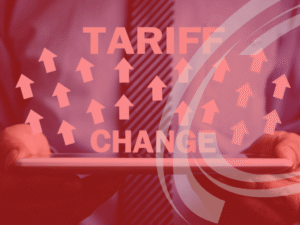
Thriving Amid Global Tariffs: Essential Strategies for Australian Businesses
Explore how Australian businesses can navigate global tariffs and trade shifts effectively. Gain strategic insights to mitigate risks and leverage opportunities amidst changing international trade dynamics.

Stop Guessing: Is Your Business Really Healthy? Here’s How to Know for Sure
Is your business on track or slowly heading for trouble? Use our comprehensive SME Health Checklist to uncover risks, seize opportunities and take confident steps towards sustainable growth.

Capturing Consumer Attention – Strategic Insights for Australian Small Businesses
Discover strategies for Australian small businesses to capture consumer attention amid evolving trends effectively. Explore insights into consumer sentiment, agentic AI, and commerce media to boost competitiveness and growth.
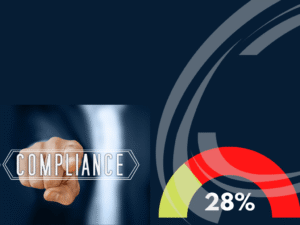
One Wrong Step: Why Skipping Appropriate Policies and Procedures Can Sink Your Small Business
Australian small businesses move fast, yet too many forget that appropriate policies and procedures are their first line of defence. From six-figure Fair Work penalties to privacy fines that reach the tens of millions, ignoring documentation can drain cash flow, erode culture, and damage hard-won reputations in hours.
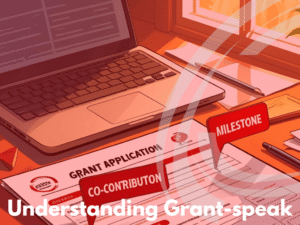
Decode Before You Commit: Navigating Grant Jargon, What to Look for Before You Apply
Grants can fuel growth, but only if you understand what you’re signing up for. Learn how navigating grant jargon before you apply can save time, money, and missed opportunities.

The Vanity Trap: What Small Businesses Get Wrong About Social Media Metrics
Impressions aren’t impact. Likes aren’t loyalty. Discover what small businesses get wrong about social media metrics, and how to track what actually drives growth and revenue.
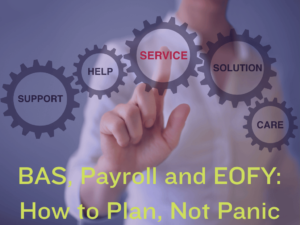
Stop the Scramble: BAS, Payroll and EOFY – How to Plan, Not Panic
Deadlines shouldn’t feel like danger zones. Learn how Australian SMEs can prepare for BAS, payroll and EOFY with calm, clarity, and confidence, before the pressure hits.

AI Isn’t Just for Tech Giants: How Australian Small Businesses Can Harness It Today
Artificial intelligence is no longer out of reach for small businesses. Discover how your business can benefit from practical, affordable, and effective AI tools today.

Dead Ends or Gold Mines? How to Identify Which Tenders or Grants Are Actually Worth Your Time
With thousands of tenders and grants available, most businesses waste time chasing the wrong ones. Learn how to identify which tenders or grants are actually worth your time—and how to stop gambling and start strategising.
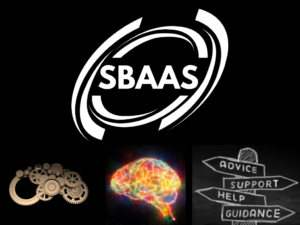
Why Flying Solo Is Costing You More Than Sleep—and How SBAAS Full Service Coaching Helps
Why Flying Solo Is Costing You More Than Sleep—and How SBAAS Full Service Coaching Helps When “Doing It All” Starts to Feel Like Doing Too

“I Thought I Did Everything Right”: A Small Business Owner’s Wake-Up Call About Fair Dismissal
“I Thought I Did Everything Right”: A Small Business Owner’s Wake-Up Call About Fair Dismissal Navigating Employee Disputes in the Fitness Industry with SBAAS by
